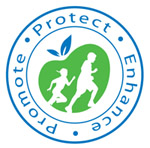
CONTACT:
Macon County Environmental Health
1830 Lakeside Drive, Franklin, NC 28734
Phone: (828) 349-2490
Fax: (828) 349-4136
email
Office Hours:
8:00 AM - 5:00 PM
Monday-Friday
CHILD CARE LINKS
NC Department of Environment and Natural Resources Children’s Environmental Health Branch
NC Division of Child Development
NC Rules Governing the Sanitation
of Child Care Centers
MRSA Information
SCHOOL LINKS
NC Rules Governing the Sanitation of Food Handling Establishments
NC Rules Governing the Sanitation of Public, Private and Religious Schools
LEAD LINKS
CDC Lead Information
NC Department of Environment and Natural Resources
Children’s Environmental Health Branch
|
|
 Macon County Public Health Macon County Public Health
Environmental Health Services
The Macon County Environmental Health Section supports many programs dedicated to the protection of our children and their health. These programs include the inspection of child care centers, public & private school buildings
and cafeterias, and childhood lead investigations.
Child Care Centers
Currently in Macon County there are 19 licensed Child Care Centers. These centers are inspected bi-annually. The inspections are unannounced and conducted by an authorized Environmental Health Specialist. These inspections ensure that proper procedures are followed for everything ranging from diaper changing to food service as well as general sanitation. Child Care Centers are graded and classified as superior, approved, provisional or disapproved based on the number of demits received.
Click here to view the latest Child Care Center ratings. Your search may be refined by selecting the following under Establishment Type: 42-Child Care, 11-Public School Lunch, 44-School Building, or 5 for Private Schools.
To receive a superior, a demerit score of less than 15 must be achieved with no 6 demerit items deducted.
An approved is received if the demerit score is more than 15 but less than 30.
A provisional classification is assigned if any 6 demerit item is violated or if the total demerit score is more than 30 but not more than 45.
If the demerit score is 46 or more or, if the conditions which resulted in a provisional classification have not been corrected in the time period specified by the Environmental Health Specialist, then the establishment will be placed in a disapproved status.
If the provisional status exceeds 7 days, or the child care center is disapproved, the Division of Child Development shall be notified immediately for further action. At the end of the inspection, a classification card is posted in a conspicuous place designated by the Environmental Health Specialist.
School Buildings & Cafeterias
School buildings are graded on an annual basis. The purpose of these inspections is to ensure that proper sanitation is maintained in all Macon County public schools as well as in the private school. The inspection process covers everything from proper maintenance of the school facilities to correctly controlling chemicals used within the school building. Schools are graded on a 100 point scale, however, no letter grade is posted for the school building.
School cafeterias within the school systems are graded on a quarterly basis and are regulated in accordance with the Rules Governing the Sanitation of Foodservice Establishments. The grading scale is on a 100 point scale and a letter grade is assigned and posted. A score of 90 to 100 is awarded an A, a score of 80 to 89.5 is awarded a B and a score of 79 to 79.5 is awarded a C. A score below 70 results in an immediate suspension of the operating permit. The purpose of the cafeteria inspection is to ensure the proper storage, preparation and serving of food as well as the proper cleaning and sanitation of all facilities and equipment.
Lead Investigations
The Macon County Childhood Lead Poisoning Prevention Program (CLPPP) was funded by a grant from the Centers for Disease Control (CDC) in an effort to eliminate childhood lead poisoning in Macon County. Although there is an increase in lead screenings, lead poisoning is still a problem that affects children for their entire lives. The CLPPP currently provides early intervention, surveillance, abatement enforcement, monitoring inspections and risk assessments, and case management for the county to assist the CDC in its elimination goal. |
